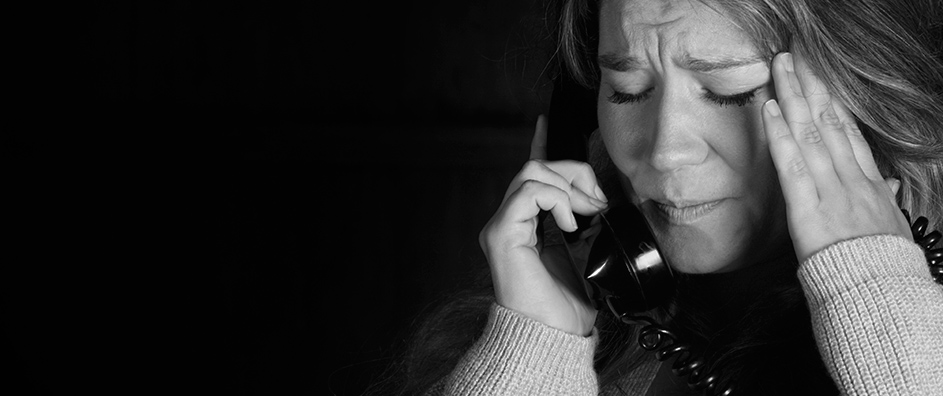In contemporary discourse, the interplay between justice and maternal intuition frequently surfaces, particularly within the context of Bahá’í teachings. This examination, framed by the poignant theme of “Bitter Justice: A Mother’s Intuition in the Face of Wrong,” delves into the profound ramifications of a mother’s insights, informed by spiritual principles, and the way these insights navigate the complexities of injustice. The multifaceted nature of this theme reveals much about the Bahá’í perspective on justice, familial duty, and the divine synchronicity that pervades human experience.
At its core, this exploration embarks on the premise that a mother’s intuition—often described as an innate, almost instinctual understanding of her child’s needs—embodies a unique lens through which to discern ethical dilemmas. The Bahá’í Faith, with its underpinning principles of unity and justice, advocates for a worldview where perceiving injustice is intricately linked with moral responsibility. Hence, the union of maternal instinct with the quest for fairness augments the potential for restorative justice.
Examining the Bahá’í writings reveals a rich tapestry of thought surrounding justice. Central to these teachings is the notion that true justice transcends mere retribution; it pursues the reconciliation of the transgressor and the aggrieved. This concept resonates profoundly with maternal instincts, which often prioritize healing and understanding over punitive measures. Therefore, a mother caught in the throes of injustice confronting her child might instinctively seek approaches that embody compassion and empathy, thereby contributing to the elevation of moral standards within her family and beyond.
The impact of a mother’s intuition can manifest in various circumstances. Consider the scenario of a child experiencing bullying at school. The mother, by virtue of her intuition, may perceive the emotional turmoil her child undergoes, often even before her child articulates the distress. In such instances, a mother’s response—one based in Bahá’í principles—could entail a conversation centered on forgiveness, resilience, and the importance of advocating for oneself and others. Such guidance not only addresses the immediate emotional need but also instills a profound understanding of justice as a precursor to healing.
This emphasizes a crucial aspect of the Bahá’í teachings: the transformative power of justice viewed through a lens of love and compassion. The story of a mother facing wrongful treatment toward her child, while grappling with her own sense of outrage, epitomizes the challenge and opportunity present in navigating emotional responses. It exemplifies the transformative nature of maternal intuition, which invites a balanced engagement with profound feelings like anger—channeling them, not into vengeance, but into constructive action.
An essential feature of this discourse involves the recognition of justice as an evolving construct. Within Bahá’í philosophy, all human constructs are subject to growth and refinement, influenced by spiritual development and enlightening perspectives. A mother’s intuitive disposition can serve as a catalyst for reformative thought, pushing against the boundaries of traditional notions of justice. By fostering an environment that embraces open dialogue and understanding, she plays a pivotal role in cultivating just relationships within her community.
Moreover, the confluence of maternal intuition and Bahá’í justice teachings sheds light on the broader societal implications of nurturing perspectives. In acknowledging the unique position mothers hold within the societal fabric, one observes how their responses to perceived injustices can ripple outward, influencing community norms and values. A mother’s response to her child’s grievance not only shapes her child’s worldview but also contributes to the collective consciousness, which Bahá’í teachings assert is vital for societal advancement.
This brings us to consider the illustrative narratives found within the Bahá’í writings, which often underscore the exemplars of justice in history. Figures such as Bahá’u’lláh, the founder of the Bahá’í Faith, epitomize the integration of divine justice with human experience. Their stories serve to inspire individuals to embody justice within their daily lives, particularly in familial settings. A mother, drawing upon these narratives, can invoke the ideals of equity and righteousness, instilling them within her progeny amidst episodes of injustice.
Furthermore, the pursuit of justice laced with compassion reveals itself in the broader calls for systemic reforms. The teachings advocate that individual actions—when guided by innate intuition and bolstered by spiritual principles—can indeed lead to significant transformations in societal structures. When mothers advocate for justice, they materially contribute to reforming the systemic issues affecting their families and communities.
Ultimately, the Bahá’í approach to understanding bitter justice and motherly intuition aligns seamlessly with a vision for an integrated and equitable society. The synthesis of a mother’s insight and the pursuit of divine justice is both a personal journey and a collective mission. The guidance provided by mothers may well nurture the seeds of a more just world, influencing not only their immediate families but society at large. In this intricate tapestry of relationships, intuition becomes a sanguine force, promoting understanding over division, healing over retribution, and unity over discord.
As one reflects on the richness of Bahá’í teachings surrounding justice and maternal intuition, it is clear that these narratives do more than merely illuminate individual experiences; they challenge each of us to consider how we can embody and advance these principles within our spheres of influence. The journey towards justice—however bitter the path may be—serves as both an individual and collective endeavor, urging all to contribute with love, wisdom, and an intuitive understanding of each other’s struggles.
